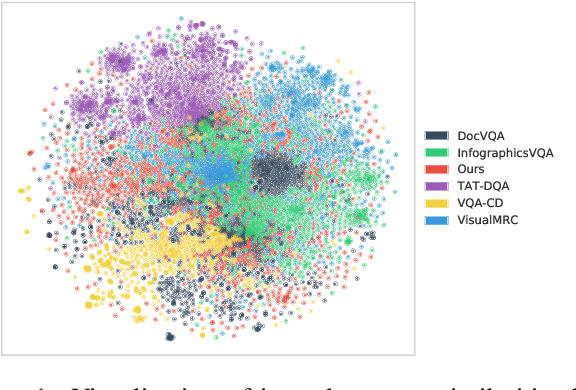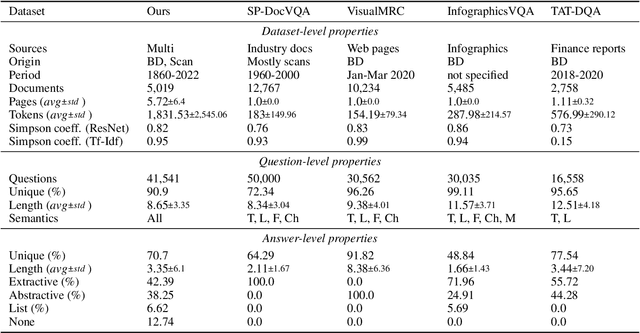Paweł Józiak
Arctic-TILT. Business Document Understanding at Sub-Billion Scale
Aug 08, 2024Abstract:The vast portion of workloads employing LLMs involves answering questions grounded on PDF or scan content. We introduce the Arctic-TILT achieving accuracy on par with models 1000$\times$ its size on these use cases. It can be fine-tuned and deployed on a single 24GB GPU, lowering operational costs while processing Visually Rich Documents with up to 400k tokens. The model establishes state-of-the-art results on seven diverse Document Understanding benchmarks, as well as provides reliable confidence scores and quick inference, which are essential for processing files in large-scale or time-sensitive enterprise environments.
Document Understanding Dataset and Evaluation (DUDE)
May 15, 2023



Abstract:We call on the Document AI (DocAI) community to reevaluate current methodologies and embrace the challenge of creating more practically-oriented benchmarks. Document Understanding Dataset and Evaluation (DUDE) seeks to remediate the halted research progress in understanding visually-rich documents (VRDs). We present a new dataset with novelties related to types of questions, answers, and document layouts based on multi-industry, multi-domain, and multi-page VRDs of various origins, and dates. Moreover, we are pushing the boundaries of current methods by creating multi-task and multi-domain evaluation setups that more accurately simulate real-world situations where powerful generalization and adaptation under low-resource settings are desired. DUDE aims to set a new standard as a more practical, long-standing benchmark for the community, and we hope that it will lead to future extensions and contributions that address real-world challenges. Finally, our work illustrates the importance of finding more efficient ways to model language, images, and layout in DocAI.
 Add to Chrome
Add to Chrome Add to Firefox
Add to Firefox Add to Edge
Add to Edge